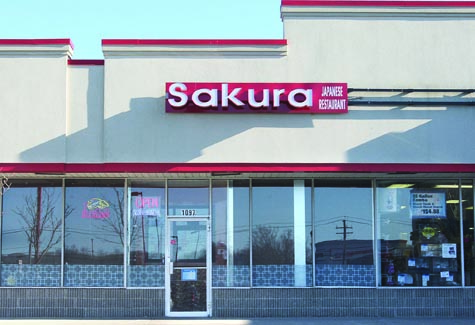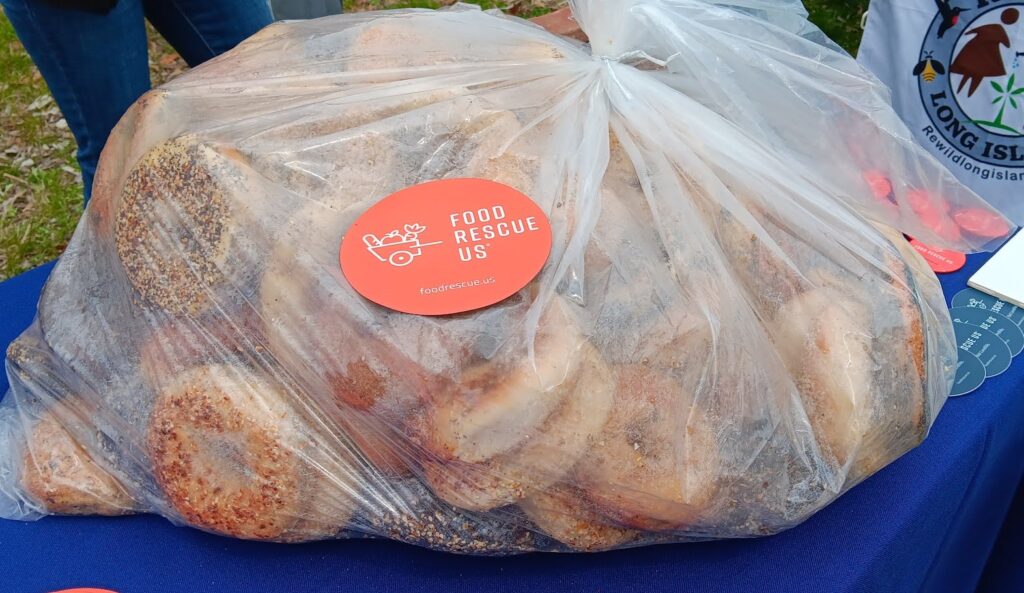Report: 1 in 4 local restaurants has health violations posted online

Some of Riverhead’s best-known restaurants are currently the worst health code violators among businesses within the town that serve food, according to inspections performed within the last year by the county Department of Health Services, which publishes the reports online.
Sakura Japanese Restaurant on Route 58 leads the pack with 16 alleged health code violations, according to the reports.
The alleged violations range from “no suitable utensil” at a bowl of self-serve lemon wedges, to a container of rice found sitting at 83 degrees, to an employee who was spotted deboning fish with his bare hands.
Inspectors found mold on several food items in refrigerators at downtown’s Dark Horse restaurant and the neighboring Tweed’s Buffalo Bar, which are both among the 10 eateries from Wading River to Laurel with the most alleged violations, according to the online reports.
Along with Dark Horse, the Hampton Deli on Flanders Road had 12 violations listed, many related to food found to be stored or sitting out at improper temperatures. The Peconic Bay Diner and Greek Island Restaurant rounded out the top five, with eight violations apiece.
Overall, 50 inspection reports containing critical violations are listed online from the 195 local businesses subject to inspections.
That means 25 percent of local eateries have violations listed publicly, but no reports show up for the rest. In neighboring Southold Town, 28 percent of restaurants were listed as having open violations.
According to one citation for the Dark Horse restaurant, mold was found in celery soup, chicken stock and two containers of sauerkraut, all of which were stored in a walk-in refrigerator. The Dark Horse opened in September on East Main Street and is owned by Dee Muma,
Another citation states: “Two porterhouse steaks were found in the cookline 2 door low boy refrigerator and were adulterated with a green hue and foul odor.”
At Tweed’s, owned by Ms. Muma’s husband, Ed Tuccio, inspectors in June reported finding mold on smoked salmon, Swiss cheese, meatloaf, three bags of sausage meat, cooked duck and mashed potatoes in a walk-in refrigerator.
Most of Tweed’s seven total alleged violations related to improper storage or food temperatures.
County health inspectors refer to the violations in the reports as “critical” violations, which “relate directly to factors which lead to food-borne illness and must be corrected immediately,” said Christopher Sortino, who heads the county Bureau of Public Health Protection and oversees the county’s inspectors.
The county is pursuing administrative proceedings against Sakura for bare-hand contact with food, which county officials said is standard for that particular violation — even if it’s a first offense. For violations that are not referred to administrative proceedings, the restaurants are responsible for correcting problems on the day of inspection or before a county reinspection at a later date.
Sakura is the only restaurant in the top five with a violation that has been referred to an administrative hearing, which could result in a civil penalty, or the restaurant being cleared of any wrongdoing.
Sakura owners did not immediately return requests for comment.
Anthony Coates, a friend of Mr. Tuccio’s who serves as a Tweed’s spokesman, commented as follows on the moldy food found in the restaurant’s fridge: “Those products at no time were served to the public. I’m sure any homeowner can understand that things can turn in the refrigerator. That doesn’t mean it‘s coming to your dinner table.”
All of the items the county considered violations were discarded at the time of the inspection last year, and Tweed’s has since “been given a clean bill of health,” Mr. Coates said.
In an interview, Ms. Muma refuted or explained each of Dark Horse’s citations.
She said the inspector should have understood that the pieces of steak in question were dry-aged and that the meat is expected to grow mold — referred to in the industry as “crust” — which is shaved off before cooking. She said the meat had just been delivered by the restaurant’s vendor.
“It’s one of those things,” Ms. Muma said, adding that between them, she and her head chef have 60 years of food preparation experience, and “we’ve never gotten anyone sick. We’ve never had a complaint.”
“Only inspectors who have been in the field long enough … understand these differences,” she added in reference to mold on dry-aged meat. “They don’t cook. They’ve been trained as sanitarians. But how you interpret things is very much an art.”
Ms. Muma said the other moldy items referenced in the Dark Horse report had been forgotten about, and would have never been served to customers.
“If there was a soup that we were no longer using, that got left there by mistake,” she said. “It wasn’t that we were trying to feed somebody an old soup. We stopped serving it and somebody didn’t throw it away. I would raise my hand to that one, yeah. I probably should have thrown that out, but it was off the menu and it was forgotten about.”
The diner owners both insisted their respective violations were relatively minor. Peconic Bay Diner owner Angelo Stavro complained it was unfair that the reports were listed online because, he said, everything was corrected during the inspection.
“I did whatever they told me to at the time,” he said.
Andy Drepanis of Greek Island Restaurant in Wading River boasted that he has “one of the cleanest restaurants around.”
“I was told to label a bottle here, cover up some sewer line with some sheet rock,” he said when asked about the citations, which included two that listed food items found at improper temperatures. “Any food I threw it out. Or, like a dented can, I returned it. It was all minor stuff.
“My customers are welcome to come into my kitchen, I tell them all the time,” he added.
The owner of the Hampton Deli could not be reached for comment.
County health officials list the reports online only if inspectors find critical violations in two visits within a 12-month period, county officials said.
Mr. Sortino said the frequency of inspections — which come unannounced, though inspectors do have to immediately identify themselves — is determined in relation to the risk of food-borne illness.
“Most restaurants are considered high risk and are inspected twice a year; medium risk establishments are generally done once a year and low risk establishments — an example might be a bar that does not prepare food but only provides packaged foods — are done every two years,” he said.
“The great majority of food establishments under permit to the department are deemed high risk,” Mr. Sortino added.
The department has 16 full-time food inspectors who train for six months and undergo field testing before they are allowed to inspect food establishments on their own, he said.
Restaurant owners do get a chance to explain themselves before a report is drawn up, Mr. Sortino said.
The 195 eateries listed on the health department’s website — 147 from the 11901 area code alone, which includes most of Riverhead and parts of Southampton Town — include school cafeterias and even ice cream stands at Splish Splash. No violations were listed in any of the school cafeterias or ice cream stands. The list does not include wineries.
Suffolk County health officials have been posting restaurant violations online since 2002 at http://www.co.suffolk.ny.us/health/Restaurant/Rest_Search.aspx.
mwhite@timesreview.com
A MESSAGE FROM TIMES/REVIEW EDITORS









